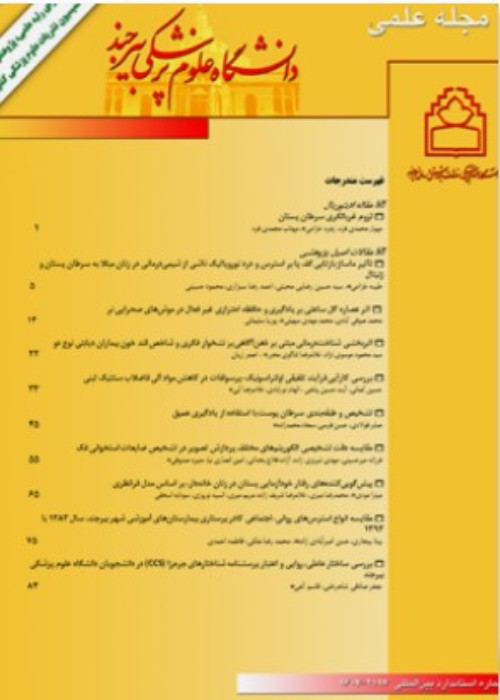Effect of Kelussia odoratissima Mozaff extract on PNPLA3 gene expression in non-alcoholic fatty liver and control rats
Non-alcoholic fatty liver disease (NAFLD) is associated with such symptoms as steatosis, fibrosis, and liver cirrhosis. Kelussia has attracted assiduous attention due to its protective effects on the liver. The PNPLA3 gene is mainly expressed in the liver and plays a major role in the degradation rate of hepatic triglycerides. Therefore, the present study aimed to assess the effect of Kelussia extract on PNPLA3 gene expression in rats with fatty liver and healthy rats.
This experimental study was conducted on 24 male Wistar rats in the control group (no treatment), obese group (which received a high-fat diet), treatment group 1 (which received a high-fat diet with Kelussia extract 400 mg/kg) and treatment group 2 (a high-fat diet with Kelussia extract 800 mg/kg) for six weeks. Blood samples were taken from rats and the factors of (LDL, HDL, Cholesterol, Triglyceride, and fasting sugar) were measured. After sampling the rat liver, the effect of Kelussia on PNPLA3 gene expression was investigated using the Real-time reverse transcription-polymerase chain reaction (RT-PCR) technique and analyzed in SPSS software (version 22).
Based on the results, Kelussia extract at a dose of 800 mg/kg resulted in a more dramatic decrease in PNPLA3 gene expression in rats with fatty liver, compared to a dose of 400 mg /kg, and this reduction was statistically significant, compared to the fatty liver group (P<0.05). The results of biochemical tests confirmed liver improvement in the rats treated with Kelussia extract at a dose of 800 mg/kg.
It can be said that Kelussia had a beneficial effect on the reduction of blood lipids; moreover, it reduces the accumulation of triglycerides in the liver and improves the tissue structure of the liver by reducing the expression of PNPLA3 gene; therefore, with more studies, it can be considered a supplement to reduce blood lipids.
- حق عضویت دریافتی صرف حمایت از نشریات عضو و نگهداری، تکمیل و توسعه مگیران میشود.
- پرداخت حق اشتراک و دانلود مقالات اجازه بازنشر آن در سایر رسانههای چاپی و دیجیتال را به کاربر نمیدهد.



